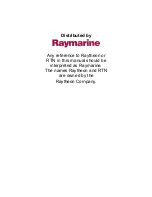
Appendix
Operation Manual - SP 305
88
revDate
Licensed Electrician
A qualified electrician licensed by the state,
county, or municipality where the connections
are to be made. In some locations, electricians
are not required to be licensed, but the work
should still be completed by a competent profes-
sional. Under no circumstances should high-volt-
age connections be made by a concrete pump
operator or related personnel.
Maintenance
All procedures for servicing, inspection, and
repair of concrete pumps and related equipment
and devices. Maintenance and inspection are
methods of
maintaining
the desired state of the
equipment. Repair is the method of
restoring
the
desired state of the equipment.
Maximum Pressure
When talking about a hydraulic system, maxi-
mum pressure refers to the highest pressure that
can be achieved with the settings of the circuit
relief valves. When discussing concrete output,
maximum pressure refers to the pressure that
will be developed if the hydraulic system pres-
sure reaches the relief valve setting. Concrete
pressure is always the force at which the differ-
ential cylinders are moving, divided by the cross-
sectional area of the concrete cylinder. Maximum
concrete pressure, then, is developed when the
differential cylinders are moving with maximum
force, which is determined by the hydraulic sys-
tem relief valve setting. During normal pumping,
the resistance of moving the concrete through
the pipe or boom creates the pressure needed
by the pump and is well under the maximum
pressure.
See Also:
Concrete Pressure
Minimum Safety Distance
In this manual, the term “minimum safety dis-
tance” refers to the closest distance that you are
allowed to approach an object or electrical wires
while leaving room for errors in human judgment
or machine malfunction. The distance from elec-
trical wires in the United States is 17 feet, as rec-
ommended by the American Concrete Pumping
Association. This distance may have other values
in different countries.
Murphy’s Law
An old adage that says: “Anything that can go
wrong, will go wrong, and at the worst possible
moment.”
Operational Area
The area around a working piece of equipment
or point of discharge where dangers can be
encountered because of the nature of the
machinery or process in use. For safety reasons,
do not allow unauthorized presence in the opera-
tional area.
OSHA
Occupational Safety and Health Administration.
A branch of the U. S. federal government that
deals with job safety. It establishes and enforces
safety regulations for industry and business. One
of the areas over which it has authority is con-
struction job sites and workshops.
Personal Protective Apparel
Things you can wear to protect yourself from
potential dangers in a concrete placing environ-
ment. Examples are:
• snug-fitting work clothes
• steel-toed work boots
• lime-resistant gloves
• safety glasses
• ear muffs or ear plugs
• rubber boots for when you have to stand in
concrete
• hard hat
Point of Discharge
The location on the machine from which concrete
is expelled from a delivery system. This can be
the point of placement (the actual form that is
being filled with concrete) or the cleanout area
after completion of a job.
Pour
Used by the concrete pumping industry and in
this manual as a noun. It is the specific job for the
pump during any given time period, e.g. “We’ll
grab lunch right after the pour.”
Prime Mover
The primary power source for a hydraulic sys-
tem. The term “prime mover” denotes neither an
internal combustion engine nor an electric motor.
Proportional
Proportional movement means the speed that a
boom or outrigger travels is proportional to the
amount of movement on the control handle (joy-
stick or outrigger handle).
Home
TOC
Home
TOC
Summary of Contents for SP 305
Page 10: ...Introduction Operation Manual SP 305 10 8 4 11 NOTES Home TOC Home TOC Print Print...
Page 14: ...Specifications Operation Manual SP 305 14 8 4 11 NOTES Home TOC Home TOC Print Print...
Page 20: ...Safety Operation Manual SP 305 20 8 4 11 NOTES Home TOC Home TOC Print Print...
Page 38: ...Operation 38 8 4 11 Operation Manual SP 305 Home TOC Home TOC Print Print...
Page 100: ...Appendix Operation Manual SP 305 100 revDate NOTES Home TOC Home TOC Print Print...
Page 101: ...SP 305 OPERATION MANUAL INDEX Home TOC Home TOC Print Print...
















































